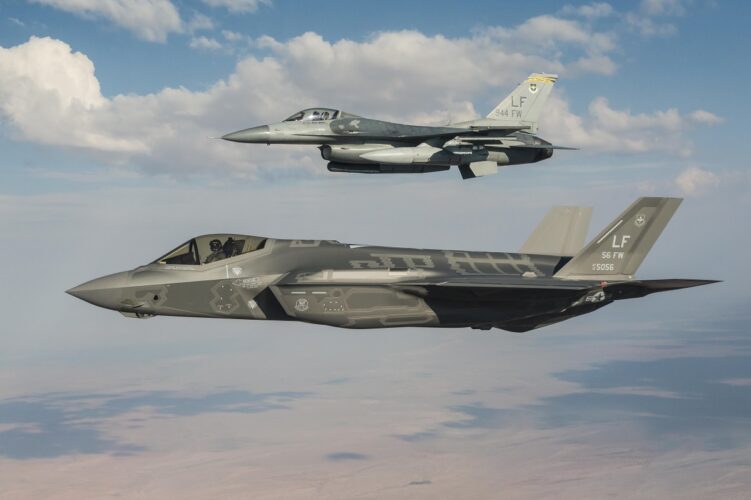After months of stonewalling, the Turkish Parliament finally approved a directive issued by Turkish President Recep Tayyip Erdoğan for Sweden’s NATO bid on Tuesday, January 23rd, leaving Hungary as the last holdout. Just a day after the resolution, President Joe Biden issued a letter to Congress, announcing his intention to initiate the sale of F-16 fighters to Turkey—a deal years in the making, plagued with delays and roadblocks. However, Congress still holds the final authority on whether the sale is ultimately approved.

Last Tuesday (January 24th), the Turkish Grand National Assembly passed legislation approving Turkey’s vote in favor of Sweden’s accession into NATO. After months of negotiation with both Sweden and the Biden Administration, this decision makes Sweden the 31st member of the military alliance. The vote was published in the Official Gazette yesterday (January 25th), making it final and officially granting Turkish support for Sweden’s membership.
Sweden’s Prime Minister, Ulf Kristersson, announced the historic decision via Twitter, stating that Sweden was a step closer to full membership of the security alliance.
Welcome Türkiye’s approval of the ratification of Sweden’s NATO accession. With this, a key milestone has been reached in Sweden’s path towards NATO membership.
— SwedishPM (@SwedishPM) January 25, 2024
Former Arizona Senator and US Ambassador to Turkey, Jeff Flake, also expressed his support for the vote, stating:
This is good for Sweden, good for Türkiye, and good for our NATO alliance. https://t.co/maHF6sbR9B
— Jeff Flake (@JeffFlake) December 26, 2023
According to a report by Reuters, President Biden issued a letter to to the top Republican and Democratic members of the Senate Foreign Relations and House of Representatives Foreign Affairs committees on Wednesday (January 24th), informing the ranking members of the President’s of his intention to begin the formal notification process for the sale of F-16’s to Turkey. In the letter, Biden urged Congress to approve the sale “without delay,” a U.S. official said. Turkey’s long time aspirations of purchasing 40 factory-built F-16 Block 70/72’s and acquiring 80+ modernization kits for its preexisting fleet of fighters.

This quid-pro-quo between the two countries wasn’t received well by all as the Biden White House was promptly met by an open letter by “NoJetsforTurkey coalition”, made up of Hellenic American Leadership Council (HALC), American Friends of Kurdistan (AFK), Hindu American Foundation (HAF), In Defense of Christians (IDC) and Middle East Forum (MEF), the letter on HALC website reading:
“This summer, the House passed a bill restricting the sale of F-16 jets and modernization kits to Turkey unless the sale goes through a rigorous certification process. Now we need your help to pass a similar measure in the Senate.
President Erdogan is currently demanding to purchase F-16 fighter jets and modernization kits from the United States. Recently, President Biden suggested he would support such a sale. But any such sale requires the approval of Congress, so we need you to contact your Senator right now.
Medyascope'un haftalık e-bülteni
Andaç'a abone olun
Editörlerimizin derlediği öngörüler, analizler, Türkiye’yi ve dünyayı şekillendiren haberler, Medyascope’un e-bülteni Andaç‘la her çarşamba mail kutunuzda.
We need as many Senators to support Senate Amendment #5754 to the National Defense Authorization Act, which would halt the proposed sale and transfer of such military equipment.
We need to make sure Turkey cannot purchase F-16s or upgrade kits unless and until it shows compliance with U.S. and international law. Please contact your Senator right now and ask that they oppose Turkey’s request. “

Background
Mere weeks after Russia’s invasion of Ukraine, both Sweden and Finland discarded their decades long policies of neutrality to apply for NATO membership, both on May 18th of 2022. While Finland’s accession was relatively quick, its membership being approved 10 months after its application, Turkey demanded significant concessions from Sweden in exchange for approval – some concessions many experts argued that were neither legally nor politically viable; such as extraditions of residents of Sweden that Turkey alleged to be members of terrorist organizations.

Earlier in the process, President Erdoğan expressed opposition to Finland and Sweden joining NATO, claiming that these European nations allow groups classified as terrorist organizations by Turkey to operate within their borders. These groups include the Kurdistan Workers’ Party (PKK), Kurdistan Communities Union (KCK), Democratic Union Party (PYD), People’s Defense Units (YPG), and FETÖ, a religious organization accused of orchestrating the failed coup attempt of 2016. Along with a bevy of other extraditions, Turkey has demanded the extradition of Swedish Parliament member Amineh Kakabaveh and Turkish publisher and human rights activist Ragıp Zarakolu, as well as the dismissal of Defense Minister Peter Hultqvist due to his 2011 meeting with PKK members. While Sweden has so far only extradited a few low-level PKK supporters who are also facing drug charges, the primary demand was the lifting of arms embargoes imposed by the Finnish and Swedish governments in response to Turkey’s 2019 offensive into northeastern Syria, a request that has now been fulfilled.

However, recent developments reveal that Turkey’s obstruction of Sweden’s accession process was more related to the United States than Sweden itself. In 2017, Turkey entered into a deal with Russia to acquire the S-400 Surface-to-Air Missile System, despite warnings from the United States. Consequently, Turkey was removed from the F-35 Joint Strike Fighter program, with the United States arguing that the Russian-made S-400 system could compromise the stealth advantage of the F-35, a multi-decade, trillion-dollar program. The S-400, being not only a missile system but also an intelligence gathering platform maintained by Russian personnel, raised concerns.

Given Turkey’s significant financial investment of 1.4 billion dollars in the F-35 program and its exclusion from receiving the fifth-generation fighter, Turkey requested the latest version (Block 70/72) of the F-16 instead. The F-16, a design from the 1970’s, has undergone continuous upgrades to remain relevant, though it lacks certain advantages of more advanced 5th-generation designs like the F-35.

Despite being struck by CAATSA (Countering America’s Adversaries Through Sanctions Act), a legislation largely created for the likes of Russia, Iran, and North Korea, the Biden Administration remained a stalwart ally of Turkey in its efforts to finalize the F-16 deal, despite Turkey’s refusal to compromise on the operation and ownership of the S-400s. This refusal includes rejecting proposals to mothball the system or transfer it to Ukraine as war aid. Despite President Biden’s willingness to extend an olive branch to Turkey, repeatedly calling it a “valuable NATO ally”, the US Senate has been far more hesitant; The Senate Foreign Relations Committee in particular. This hesitation was perhaps best evidenced by the former Committee Chair Sen. Bob Menendez and his repeated declarations of his opposition, stating: “As I have repeatedly made clear, I strongly oppose the Biden administration’s proposed sale of new F-16 aircraft to Turkey,”

While Bob Menendez, in his position as Chair of the Committee, played a pivotal role in withholding the F-16, the Senator from New Jersey voluntarily resigned from his position in the committee last September amidst a scandalous corruption investigation. Menendez stands accused of accepting bribes and, in return, allegedly “providing sensitive U.S. Government information and taking other actions that clandestinely aided the Government of Egypt,” as well as pressuring prosecutors to drop cases against individuals closely associated with him, and assisting a New Jersey developer in obtaining millions of dollars in funding from the Qatari Royal Family, as outlined in multiple indictments against him. While Menendez’s departure from his position and the potential upcoming primary in his home state may not have directly signaled approval for Turkey’s F-16 purchase, it was significant enough for President Erdoğan to remark, “One of our most pressing issues concerning the F-16’s was the activities of U.S. Senator Bob Menendez against our country… Menendez’s departure gives us an advantage, but the F-16 matter is not solely contingent on Menendez.”
While Turkey’s F-16 purchase is not yet finalized, obstacles in its procurement path have been gradually diminishing as the Biden Administration’s security policy aims to reinforce a robust NATO front against Russia. However, the fate of the purchase remains uncertain as Biden still encounters congressional opposition and faces a looming reelection campaign that could potentially result in his ousting by his former political rival, Donald Trump, whose administration’s stance on Turkey has been notably more unpredictable and fluctuating. Despite the hurdles however, Turkey is far closer to closing the deal than it was one year ago.
Written/translated for Medyascope by Murat Türsan













